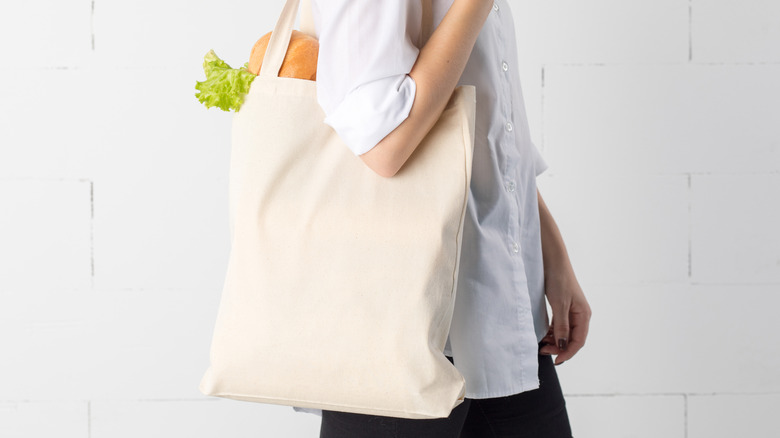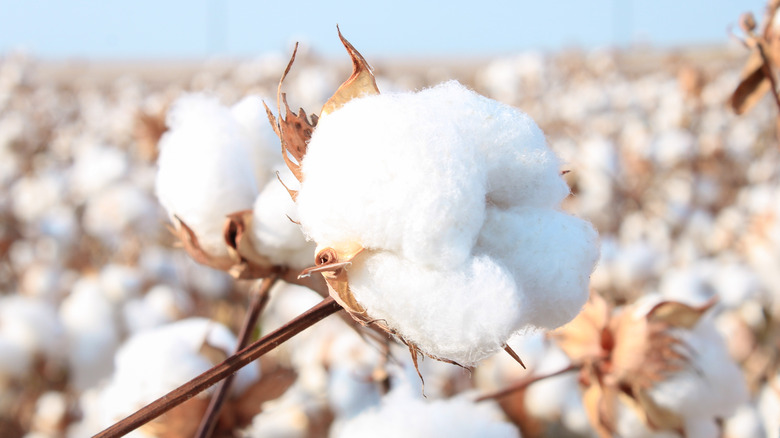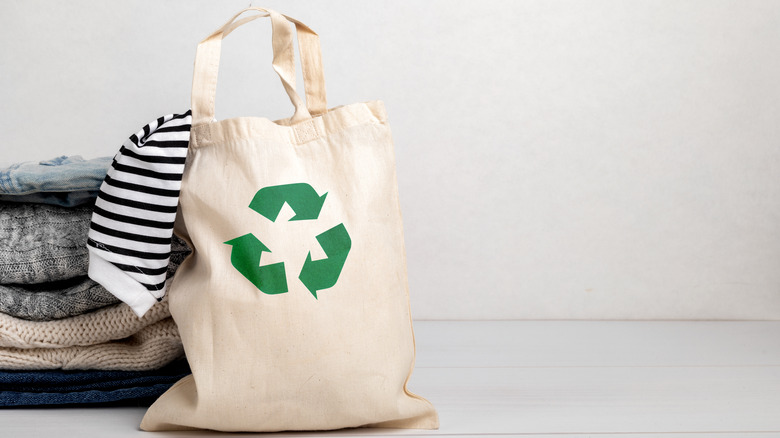Cotton Is Not Be The Best Material For Reusable Grocery Shopping Bags
The debate over whether to use paper or plastic bags has been an ongoing conversation for years at checkout lanes — but the days of hearing this phrase may be long gone.
The commonality of reusable shopping bags
In recent years, certain states have taxed or banned plastic bags out of concern for the environment. According to the National Conference of State Legislators, using fewer plastic bags can lessen negative effects on wildlife and the environment because plastics can pollute waterways and woodlands, and can also ease the strain on waste management companies and landfills since plastics are not biodegradable. The same source further notes that California was the first to enact a state-wide ban in 2014, noting that eight states have followed, including New York, Oregon, and Delaware.
Using paper shopping bags
These bans left the paper as the remaining option in stores. But some say utilizing paper is even worse than plastic. National Geographic, in particular, points out that producing paper requires a lot of resources and uses around four times the energy of a plastic bag.
In light of these plastic bag bans and increased environmentalism, stores have introduced cotton bags as alternatives and shoppers have collected their own from the likes of Etsy or Amazon. Reusable cotton bags have been touted as a better choice compared to the other two disposable options. But are they?
Why Cotton Shopping Bag is Bad for the Environment
While reusable, biodegradable, and often the fashionable choice, purchasing new cotton totes may do more harm than good: A 2018 study out of Denmark, via New York Times, found that an organic cotton tote would need to be used 20,000 times to offset its ecological footprint. This is in part because the production of cotton is exceptionally water and energy intensive. Cotton utilizes what some experts say is the most water out of all agricultural products. Surface and groundwater resources, which can be scarce, are frequently used to irrigate cotton farms, which results in freshwater evaporation loss and ineffective water management (via World Wildlife Fund).
There are other negative environmental impacts associated with cotton production, as well, including soil erosion and degradation, contamination, and pollution from pesticides (via World Wildlife Fund). But although it may seem impossible to find a perfect reusable bag, there are many more sustainable and eco-friendly options.
Alternatives to cotton shopping bags
There are materials that are less detrimental to the planet than cotton. But, before I tell you, there's something you need to know. There is no eco-friendly material better than the bag you already have. If you currently have a cotton tote or paper bag at home, don't feel guilty about going out and using them. What you already have, even if it isn't a sustainable material, is always better than going out and buying one that is.
Non-woven polypropylene shopping bags
Now that we got that out of the way if you do happen to be on the hunt for a new bag, we have some options: A well-liked choice among environmentalists is non-woven polypropylene (PP). This is a stronger type of plastic that, according to National Geographic, only needs to be used around 11 times before the environmental impact of regular plastic is equaled. There are also a handful of bags being made from recycled materials (British designer Ally Capellino uses hemp and designer Anya Hindmarch, a fellow Brit, uses old water bottles, via New York Times). Baggu, meanwhile, joggers a wide collection of reusable bags made from recycled nylon that is perfect for your next grocery shop.
Whether you choose a bag made out of recycled water bottles or thrift your next tote, you can feel proud that you're doing your part for the planet.
TLPPACKAGING FOR SHOPPING BAGS



